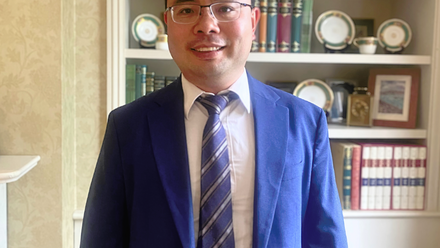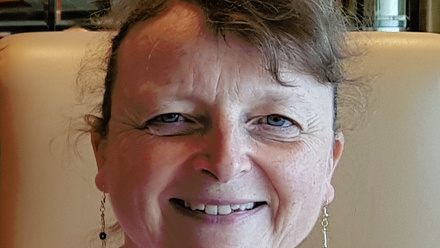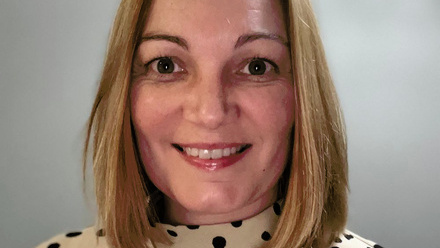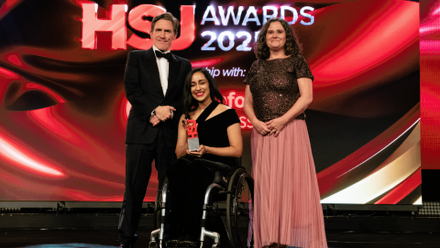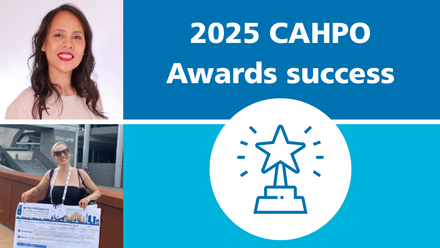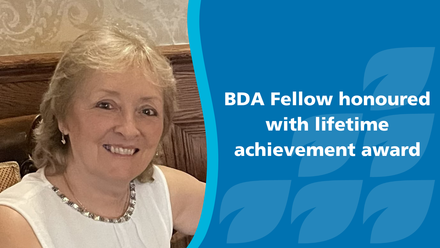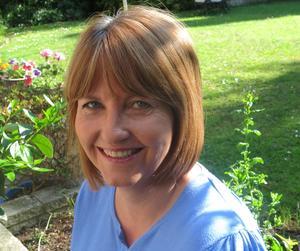
Dr Julie Lanigan is Honorary Associate Professor at the UCL Great Ormond Street Institute of Child Health (GOS ICH). Julie received a BDA Fellowship in 2022.
We asked what it means to have won the award.
What does it mean to you to have been awarded with the Fellowship honour?
I feel very honoured to be awarded the Fellowship of the BDA. It has been a great pleasure to work with the BDA officers and members down the years as a volunteer, most recently as a committee member on the Paediatric Specialist Group. I am passionate about dietetics and especially paediatrics.
I see the Fellowship as recognition not just for myself but for all the hardworking dietitians who have helped raise the profile of paediatric dietetics and place dietitians in their rightful place as key players driving forward the science of nutrition and dietetics in children.
What drove you to become a dietitian in the first place and be where you are today?
A strong belief in the benefits of a healthy lifestyle for the prevention of disease coupled with the desire to improve health and life opportunities for children around the world first inspired me to study nutrition and dietetics.
I started out in clinical practice at Northwick Park Hospital, London and soon specialised in paediatrics. An opportunity to move to research came via Margaret Lawson, then Head of Dietetics at Great Ormond Street Hospital for Children. I never looked back. Working at the joint institution of UCL GOS ICH allowed me to fulfil many of my goals.
Who inspires you?
I have been inspired by a wide array of dedicated healthcare professionals and researchers. Our research at the UCL GOS ICH Childhood Nutrition Centre was supported by earlier work, including that of Elsie Widdowson, who provided some of the earliest evidence of nutritional programming and its role in health and disease. I was privileged to work with other pioneers investigating the role of nutrition in early life on later health. Professors Alan Lucas, Mary Fewtrell and Atul Singhal have been my mentors and inspiration.
Clinically, my mentors included Dr Margaret Lawson and Lisa Cooke, with whom I spent many years working on the CHIVA Africa support and mentorship programme that was set up by Dr Karyn Moshal, consultant paediatrician in infectious diseases at GOSH. The programme provided training and funding for UK-based multidisciplinary teams to support the antiretroviral rollout to HIV-affected children living in South Africa. Such highly experienced, skilled colleagues were priceless in this setting.
More recently Vanessa Shaw became a role model with her boundless energy and dedication to paediatric dietetics. I am privileged to have worked with them all.
What advice would you give to future dietitians?
Take every opportunity you reasonably can to expand your experience. Never be afraid to try something different and be confident to promote your unique skills and knowledge to develop personally and help drive the profession forward.
I would highly recommend volunteering for the BDA as a great platform to do this through. Working with highly skilled professionals at all levels who have a diverse range of knowledge and skills in clinical practice and research is invaluable.
What has been the highlight of your dietetic career to date?
There have been many. However, I don't think it gets much better than being able to make a difference. There are many examples but what springs to mind is an experience in South Africa when I was able to help a child recover from severe acute malnutrition.
Working in the field without a range of feeds and accessories at our fingertips can be challenging. Sometimes we must go back to basics to work out a solution. Such was the case here. Faced with a child who was unable to absorb the one available feed, dietetic knowledge and skills were essential. With the help and advice of colleagues the feed was diluted and electrolytes added. The concentration was gradually increased.
With help and support by the multi-disciplinary team, mum was taught how to drip feed slowly via a syringe - a painstaking process. By the end of the week, the child had clearly rallied, and we were rewarded with a beaming smile. That's my highlight so far!


